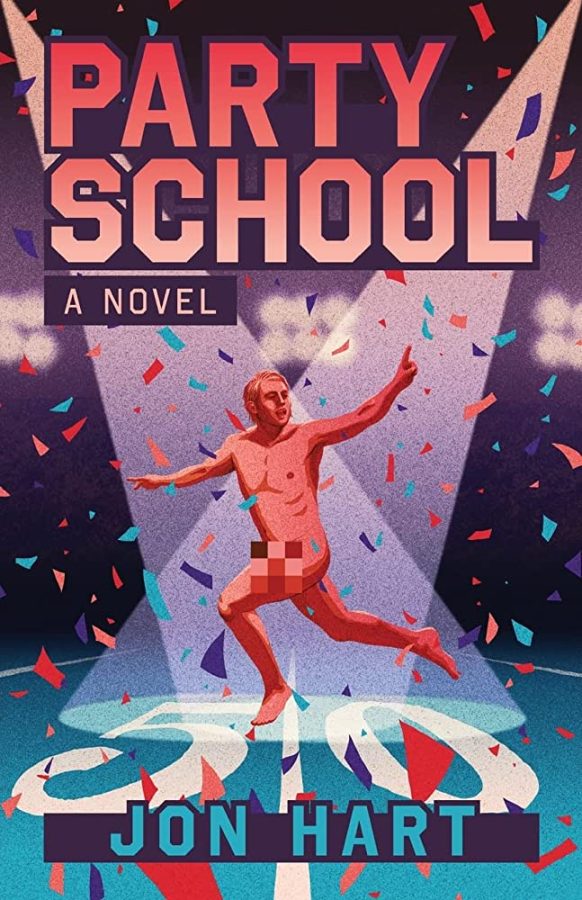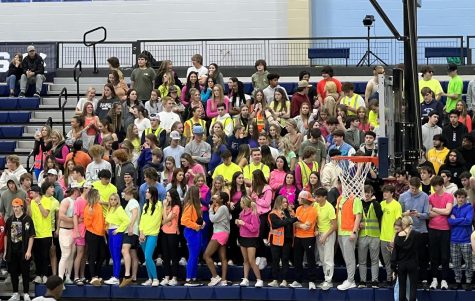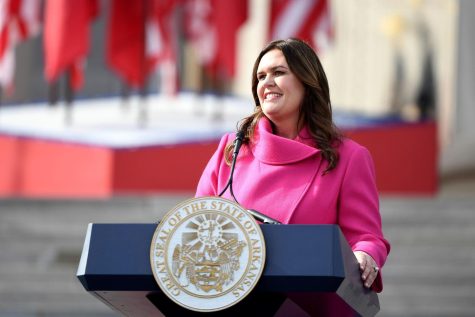Student reviews “Party School”
FInally, after two weeks of following the exciting and lively story of Dylan Mills in Jon Hart’s most recent publication, Party School, the verdict is in. It is a novel filled with an interesting college experience and what I would call quirky adventures, with loads of new friends for Dylan who have just as much personality as he does.
Party School follows Mills’ journey throughout his first college semester, where he faces the trials of being separated from his long-time girlfriend, Rosemary Silversmith, the pressure an judgment from his prestigious home village of Castleton(no, don’t call it a town, or Dylan Mills will tirelessly correct you), and finally, navigating his new party school.
Dylan’s story is very unique, and while it’s stimulating and fun to read, it isn’t as relatable as it is advertised to be. Dylan’s standing in Castleton is pretty relatable, as being a relatively un-cool and invisible kid in a sea of rich, talented peers is pretty common, as well as his overly complicated long-distance relationship with Rosemary is much like the confusing and ever changing status of high school relationships. His college experience is not so common, and to me is highly unrealistic. Not many colleges that I know of are proud of being known for their weed (except for students, because kids really do love to party), yet the teachers and college president, Mr. Wells, are very unashamed of the fact that their school has the best weed around.
The descriptions of the characters and their emotions were also a bit lacking, as I found there was more telling instead of showing. As a writer myself, I understand how important it is to describe emotions instead of just stating that a character is mad. This lack of showing causes the book to seem more childish than a highschool level book should be, but this is definitely not a book you want your middle schoolers reading (as the neverending mentions of alcohol and weed riddle the plot).
The setting and exposition of the book were very well written and established, and Hart grounds his readers immediately into Dylan’s world of chaos and uncertainty. I felt as if I were transported into Dylan’s mind while I was reading, and I couldn’t stop once I started. When Dylan’s emotions surged, so did mine. Hart does an excellent job of creating a relatable and likable main character in Dylan Mills, and I applaud him greatly for it. The plot also moves at a steady pace and it doesn’t drag out, which had me instantly hooked into the universe of Party School.
One thing that did knock me out of my reading zone was the overuse of cliches. Many of the characters, while extremely interesting and fun, were heavily stereotyped in my opinion. For example, Wally, who is Dylan’s best friend once he gets settled at his college, seemed like a stereotypical stoner kid. He came from a rough, unstable background, but stays on top by smoking and being dumb. That sounds like every other basic stoner kid to me, which made it difficult to really get into his character. There were also a few ‘scary’ characters, or characters that made Dylan feel nervous, and most of them were described as big men with beards and tattoos. We had no other information about these characters, just that their tattoos made them scary and dangerous. As someone with tattoos, I don’t appreciate that stereotype, and it made my skin crawl a little bit.
My last note is my biggest criticism of this book, and while it was only a small part of the book, it left me with a sour taste in my mouth the rest of the time. Dylan is dancing in the club with one of his new friends, Sam, and some of her friends, when he thinks to himself, “I felt weird about dancing with eight women, but I’d prefer that than dancing with eight men. Sorry if that’s politically incorrect.”. Barf! It’s established to the readers that Dylan is a straight male with a girlfriend, so it’s not homophobic for him to prefer dancing with women rather than men. What made it homophobic was the added “Sorry if that’s politically incorrect” at the end. I understand the effort, Hart, but next time, just leave it. It’s not an issue if that’s just Dylan’s sexuality. If it ain’t broke, don’t fix it!
Overall, I had fun reading Party School, and would recommend it to those who enjoy a roller coaster of a novel with a feel-good ending. I will never forget the wise words of one of Dylan’s beloved professors, Berkowitz, as he taught his students to not apologize, but to make it better! Being able to take the journey with Dylan allowed me to reflect on my own life as I’m heading off to college, and Party School has inspired me to truly find myself and become confident in who I am, just as Dylan Mills did. I already miss being immersed in this novel, and I hope to see many more works from Jon Hart.





